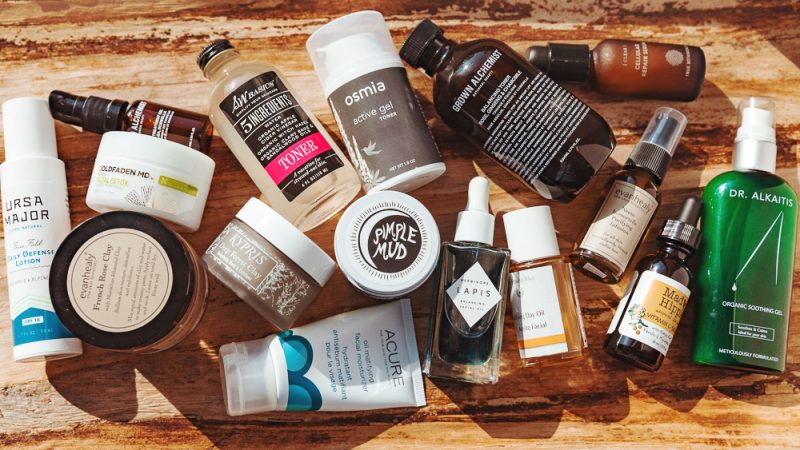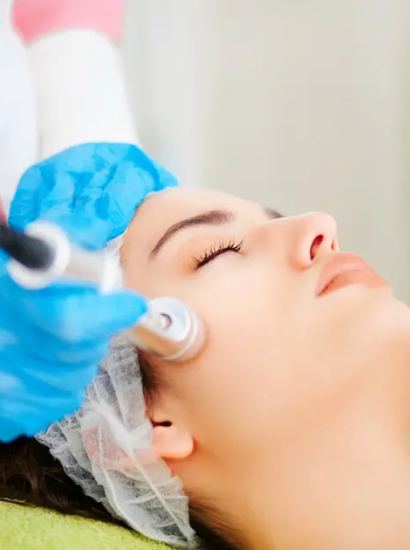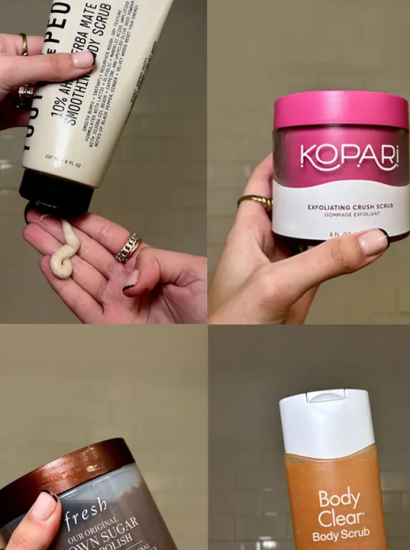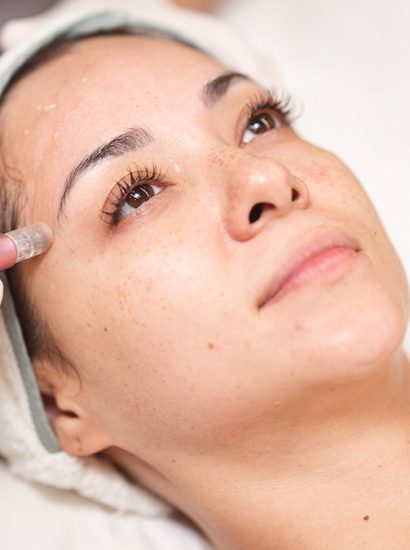Struggling with acne? You’re not alone. Acne affects millions of people, but harsh skincare products often make it worse by irritating the skin. The good news is that you can achieve clear skin naturally with the right skincare routine.
A natural skincare routine for acne focuses on gentle, non-toxic ingredients that soothe inflammation, balance oil production, and prevent breakouts—without stripping your skin. In this guide, you’ll learn how to care for your skin the natural way with simple, effective steps.
Step 1: Gentle Cleansing – Remove Dirt Without Over-Drying
Cleansing is the foundation of a great skincare routine, but using harsh cleansers can strip your skin of its natural oils, causing even more breakouts.
Best Natural Cleansers for Acne-Prone Skin
✔ Raw honey – Antibacterial and hydrating
✔ Aloe vera gel – Soothing and anti-inflammatory
✔ Tea tree oil cleanser – Fights acne-causing bacteria
How to Use
- Wash your face twice daily with lukewarm water.
- Apply a natural cleanser using gentle circular motions.
- Rinse thoroughly and pat your face dry with a clean towel.
Pro Tip: Avoid foaming cleansers with sulfates, which can be too harsh and worsen acne.
Step 2: Exfoliation – Clear Pores & Remove Dead Skin
Exfoliation helps unclog pores, remove dead skin cells, and prevent breakouts. But chemical exfoliants can be too harsh for acne-prone skin. Instead, use natural exfoliants.
Best Natural Exfoliants
✔ Oatmeal – Soothes inflammation and gently removes dead skin
✔ Coffee grounds – Rich in antioxidants, helps improve circulation
✔ Baking soda (use with caution) – A gentle scrub to unclog pores
How to Use
- Exfoliate 2-3 times a week to avoid irritation.
- Mix oatmeal or coffee grounds with honey or yogurt for a DIY scrub.
- Gently massage in circular motions for 30 seconds, then rinse.
Pro Tip: Over-exfoliating can irritate the skin and trigger more breakouts—stick to a gentle routine!
Step 3: Toning – Balance Skin’s pH & Tighten Pores
A natural toner removes leftover dirt, shrinks pores, and restores pH balance, helping to prevent acne.
Best Natural Toners for Acne
✔ Witch hazel – A natural astringent that reduces inflammation
✔ Apple cider vinegar (diluted) – Kills acne-causing bacteria
✔ Rose water – Hydrates and soothes sensitive skin
How to Use
- Soak a cotton pad in your natural toner.
- Gently wipe it over your face, avoiding the eye area.
- Let it dry naturally before applying moisturizer.
Pro Tip: Always dilute apple cider vinegar (1 part vinegar, 3 parts water) to avoid irritation.
Step 4: Moisturizing – Hydrate Without Clogging Pores
Even acne-prone skin needs moisture! The trick is choosing a lightweight, non-comedogenic moisturizer that won’t clog pores.
Best Natural Moisturizers for Acne
✔ Aloe vera gel – Lightweight and soothing
✔ Jojoba oil – Balances oil production
✔ Rosehip oil – Fades acne scars and hydrates
How to Use
- Apply a pea-sized amount after cleansing and toning.
- Gently massage it into your skin using upward motions.
- Let it absorb fully before applying other products.
Pro Tip: Avoid heavy creams with synthetic fragrances and parabens, as they can trigger breakouts.
Step 5: Spot Treatment – Target Acne Naturally
Instead of harsh chemicals, use natural spot treatments to reduce breakouts without irritation.
Best Natural Spot Treatments
✔ Tea tree oil – Kills acne bacteria (always dilute with a carrier oil)
✔ Turmeric paste – Reduces redness and swelling
✔ Green tea extract – Fights inflammation
How to Use
- Apply a small amount directly on pimples before bed.
- Let it sit overnight and rinse in the morning.
- Repeat daily until the blemish heals.
Pro Tip: Never pop pimples! It can lead to scarring and further breakouts.
Step 6: Sun Protection – Prevent Dark Spots & Aging
Sun exposure can worsen acne scars and lead to premature aging. However, many sunscreens contain chemicals that irritate sensitive skin.
Best Natural Sunscreens for Acne-Prone Skin
✔ Zinc oxide-based sunscreen – Gentle and non-comedogenic
✔ Shea butter + coconut oil mix – A light, homemade alternative
✔ Aloe vera with SPF – Soothes and protects
How to Use
- Apply sunscreen every morning, even on cloudy days.
- Reapply every 2 hours if you’re outdoors.
- Use at least SPF 30 for best protection.
Pro Tip: Look for sunscreens labeled “non-comedogenic” to avoid clogging pores.
Step 7: Healthy Lifestyle Habits for Acne-Free Skin
Skincare is just one part of the puzzle. Your diet, sleep, and stress levels also affect acne.
What to Do for Clear Skin
✔ Stay Hydrated – Drink 8+ glasses of water daily.
✔ Eat Clean – Avoid processed foods, sugar, and dairy (they trigger breakouts).
✔ Get Enough Sleep – Aim for 7-9 hours to allow skin to heal.
✔ Manage Stress – Try yoga, meditation, or deep breathing to prevent stress-induced breakouts.
Pro Tip: Switch to silk pillowcases and wash them regularly to avoid dirt buildup that can cause acne.
Conclusion
Achieving clear skin naturally is all about consistency and using the right ingredients. A gentle, chemical-free skincare routine helps balance oil, reduce inflammation, and prevent breakouts—without harsh treatments.
By following this 7-step natural skincare routine for acne, you can enjoy healthier, glowing skin in no time! 🌿✨
Ready to start? Ditch the chemicals and go natural today!
FAQs
Can a natural skincare routine really help acne?
Yes! Natural skincare avoids harsh chemicals that strip the skin, helping to heal acne gently.
How long does it take to see results with a natural routine?
Results vary, but most people see improvement within 2-4 weeks of consistent use.
What ingredients should I avoid if I have acne?
Stay away from coconut oil (too heavy), synthetic fragrances, sulfates, and alcohol-based toners—they can clog pores and irritate the skin.
Should I use oil on acne-prone skin?
Yes! Lightweight oils like jojoba and rosehip oil help regulate oil production and heal scars.
Can I wear makeup with this routine?
Yes, but choose non-comedogenic, mineral-based makeup to avoid clogging pores.
Also read: 10 Best Face Oils for Acne-Prone Skin – Clear & Hydrated Glow





